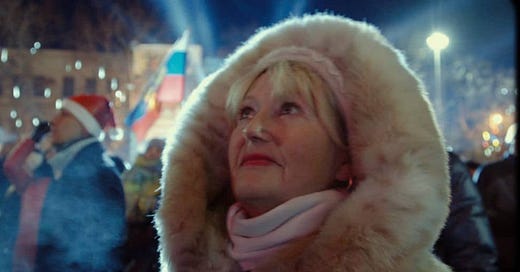‘Rodnye’ is an Astute Study of the Intersections Between the Personal and the Political

Both governments and people alike assert nationalistic identity on remarkably arbitrary terms. Ukraine declares that it is its own state, then Russia claims the Crimean region for itself, then the Donetsk region announces that it is its own state, and the politics only become more muddled from there. At stake in this conflict are the Ukrainians themselv…
Keep reading with a 7-day free trial
Subscribe to Nonfics to keep reading this post and get 7 days of free access to the full post archives.



